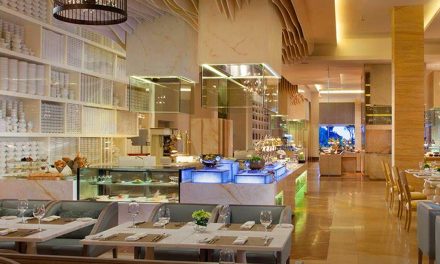Nestled in the heart of Bali, the Ubud Rice Terraces are a stunning example of the island’s natural beauty and rich cultural heritage. As someone who has meandered through these lush fields, I can tell you it’s not just a picturesque landscape but a living embodiment of traditional farming practices that have evolved over centuries. In this article, we’ll explore the intricate world of rice farming in Ubud, discover its significance, and share some personal anecdotes to bring the experience to life.
A Glimpse into Ubud’s Rice Terraces
When you first arrive at the rice terraces, it’s hard not to be completely captivated by the vibrant green layers cascading down the hillsides. The sight is almost surreal—like stepping into a painting. The traditional farming method known as *Subak* is employed here, a cooperative water management system that reflects Balinese culture and community spirit.
On my visit, I remember walking through the paths carved between the fields, the scent of wet earth perfuming the air. Each terrace is meticulously maintained, and I often found myself wondering just how much effort goes into cultivating each crop. Farmers here don’t just plant rice; they nurture a way of life that has been passed down through generations.
The Tradition of Subak
The *Subak* system is not just agricultural; it’s deeply intertwined with the Hindu philosophy of maintaining harmony with nature. It operates on the sharing of water resources among the farmers, ensuring that everyone gets their fair share of precious water for irrigation. This communal approach instills a sense of cooperation and respect for the environment.
Picture this: It’s a sunny morning, and I joined a local farmer named Wayan to learn about this traditional practice. Wayan explained how each week, festival rituals accompany the distribution of water, involving prayers and offerings to the rice goddess, Dewi Sri. His passion for the land was contagious, and it made me appreciate the cultural depth behind what might initially seem like just farming.
Sustainable Farming Practices
One of the unique aspects of Ubud’s rice terraces is their commitment to sustainable farming practices. Traditional methods are often favored over modern industrial techniques, which can lead to soil degradation and reduced biodiversity. The use of organic fertilizers, crop rotation, and natural pest control methods are commonplace here.
While sharing a meal with Wayan’s family, I was presented with a delicious feast made from local produce—rice harvested straight from their fields, complemented by fresh vegetables and spices. The taste was something I had never experienced before, and it made me more aware of what it means to eat locally and sustainably.
Engaging with the Community
If you’re planning a trip to Ubud, I highly recommend that you engage with the local community. Participating in traditional farming activities offers a unique lens into the lives of Balinese rice farmers. Many local tour guides offer hands-on experiences where you can plant or harvest rice alongside farmers.
Imagine getting your hands muddy while planting rice saplings under the warm Balinese sun. I can still feel the excitement of learning the techniques handed down through the generations. Locals often share their knowledge of timing for sowing and harvesting, and the communal bonding that occurs during such activities is genuinely enriching.
Practical Tips for Visitors
1. Time Your Visit: The best time to see the rice terraces in full glory is during the planting season from October to March. The lush green sprouts are a beautiful sight.
2. Wear Comfortable Shoes: The pathways can be uneven and slippery, especially after rain. Sturdy shoes will help you navigate the terraces safely.
3. Ask Questions: Take the time to talk to the farmers. They usually love sharing their knowledge and stories about farming traditions.
4. Capture the Moment: Although it’s tempting to take countless photos, take a moment to just watch the world around you. Observe the farmers working and feel the rhythm of their routines.
Conclusion
The Ubud Rice Terraces are more than just a beautiful destination; they represent a vibrant culture and sustainable way of life shaped by centuries of tradition. My experiences amongst the fields taught me the importance of community, sustainability, and a deep respect for the land. Whether you’re a traveler seeking adventure or someone looking to experience authentic Balinese culture, exploring the rice terraces and understanding their traditional farming practices will leave you with unforgettable memories.So pack your bags, embrace the charm of Ubud, and immerse yourself in the spirit of these breathtaking rice terraces! You’ll find that every step taken along those terraces is a step deeper into the heart of Bali’s timeless traditions.






